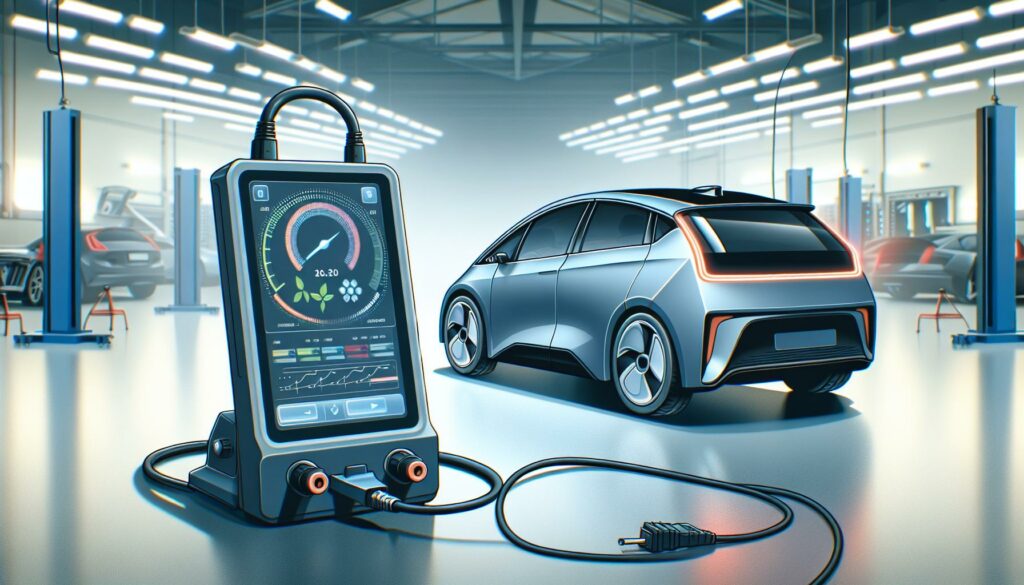Ever wondered if electric cars have OBD2? I’ll tell you, it’s a question that’s been on the minds of many car enthusiasts and environmentalists alike. As we move towards greener technology, understanding the ins and outs of these vehicles becomes increasingly important.
Electric cars, with their battery-powered engines and zero emissions, are a far cry from traditional gas-guzzlers. But do they still use the same diagnostic systems? Let’s dive into the world of OBD2 and electric cars, and find out if these two seemingly different realms actually intersect.
So, if you’re curious about the tech behind your Tesla or the mechanics of your Nissan Leaf, you’re in the right place. Let’s get started and uncover the truth about OBD2 and electric cars.
Understanding OBD2
To address the elephant in the room, let’s first decode OBD2. This shorthand stands for On-Board Diagnostics 2. It’s an essential system incorporated into almost every vehicle manufactured after 1996. Its purpose? Continual monitoring and diagnosing of a car’s main functions. Quite helpful, isn’t it?
This universal standard relates to the car’s emissions systems and provides mechanics with precise, real-time data. So, if there’s an issue, they know what, where, and possibly even why, simplifying the troubleshooting process.
What about electric cars? Do they gather usage data? Yes. But here’s the catch – they do it their way. Let’s dig deeper into OBD2 and its role in electric vehicles next.
OBD2 Systems in Traditional Cars
So, in traditional vehicles, OBD2 systems play a key role. They essentially serve as the car’s onboard doctor, constantly monitoring its health. Primarily designed to keep emissions under check, its sensor and control module network is paramount.
For instance, an oxygen sensor failure would cause your fuel economy to nosedive. It’s not just about emissions, OBD2 systems ensure overall efficiency and safety.
Interestingly, very often, you won’t even notice a faulty system’s impact till you see the dreaded Check Engine Light. It’s the OBD2 system at work, highlighting the underlying issue before a situation worsens.
Data from the OBD2 system is a boon to mechanics. They receive valuable timely real-time diagnostics to rectify vehicle malfunctions accurately and quicker. A godsend in this hustle-bustle life!
We now arrive at the crux. Let’s navigation through the specifics of OBD2 in electric cars next. After all, they are the future, right?
Are Electric Cars Equipped with OBD2?
As we acknowledge the shift towards electric cars, the question arises about their OBD2 compliance. Since OBD2 has been a game-changer for conventional cars, does it hold the same significance for electric vehicles?
Without a doubt, electric cars do have an OBD2 system, but with a twist. In these vehicles, diagnostic information is not emission related, rather it relates to their electric drivetrain system. This slight shift in perspective doesn’t undermine OBD2’s role. Its ability to diagnose issues remains pivotal for electric cars as it was for their combustion engine counterparts.
So, while the specifics might differ, OBD2’s role as the car’s onboard doctor remains intact. Whether it’s an electric car or a traditional vehicle, the reach and impact of OBD2 can’t be underestimated.
How OBD2 Works in Electric Vehicles
Just like in fuel-powered vehicles, the OBD2 in electric cars operates as a constant monitor. It’s continuously checking various parts of the car to ensure smooth operation and detect any possible issues. However, the exact points it monitors differ. Rather than exhaust emissions, the OBD2 in electric vehicles primarily keeps tabs on the battery status and electric drivetrain system.
The charge state, temperature, and health of the battery are crucial factors for OBD2 systems in electric cars. The role of the OBD2 can’t be understated as it ensures overall vehicle efficiency and safety. So yes, electric vehicles do indeed come equipped with OBD2, providing drivers with valuable insights about their vehicle’s state albeit with a different focus than traditional fuel-powered cars. This shift in perspective shows a clear adaptation with the changing dynamics of the auto industry.
The Future of OBD2 in Electric Cars
As electric vehicle technology advances, so too does OBD2’s functionality. Automobile manufacturers are adapting OBD2 to electric cars, offering drivers deeper performance data. It’s expected engine diagnostic abilities will become even more refined, providing driver-assistance for maintaining optimal battery life and monitoring drivetrain efficiency.
This evolution showcases one undeniable fact – OBD2’s importance in electric vehicles cannot be overemphasized. It’ll continue to play a pivotal role in electric car diagnostics as the industry shifts away from conventional combustion engines. Armed with these insights, electric vehicle owners can ensure a smoother, safer ride in the long run.
Conclusion
So, it’s clear that OBD2 isn’t just for traditional cars anymore. The rise of electric vehicles has seen OBD2 evolve and adapt, becoming an integral part of electric vehicle technology. Manufacturers are stepping up, enhancing OBD2’s capabilities to offer drivers detailed performance data. They’re not just keeping an eye on battery life but also monitoring drivetrain efficiency. This shift underlines OBD2’s key role in electric car diagnostics. As we move further into the era of electric vehicles, OBD2 is set to ensure a smoother, safer drive for electric car owners. It’s not just about the journey, but also about the data that drives us forward.
Frequently Asked Questions
What is the focus of this article on OBD2 in electric vehicles?
The article focuses on the growing importance and role of OBD2 in electric vehicles. It emphasizes on how manufacturers are optimizing OBD2 capabilities for offering detailed performance data pertaining to battery life and drivetrain efficiency to electric vehicle drivers.
How are OBD2 capabilities being improved in electric cars?
The manufacturers of electric cars are enhancing OBD2 capabilities to provide drivers with more intricate data on their cars’ performance. The main focus is on optimizing battery life and monitoring drivetrain efficiency.
Why is the role of OBD2 crucial in electric car diagnostics?
OBD2 plays a critical role in electric car diagnostics because it helps monitor crucial performance data. As the industry shifts more toward electric cars, the enhanced diagnostics offered by OBD2 can enable a smoother and safer driving experience.
Does the article believe OBD2’s role will grow with the advancement of electric vehicle technology?
Yes, the article indicates that with the growth and advancements in electric vehicle technology, the role and significance of OBD2 are likely to increase rather than decrease.
What do electric vehicle owners stand to gain from an enhanced OBD2 system?
Enhanced OBD2 systems in electric vehicles provide owners with more detailed performance data. This will help owners optimize battery life, monitor drivetrain efficiency, and overall, ensure a smoother, safer driving experience.

